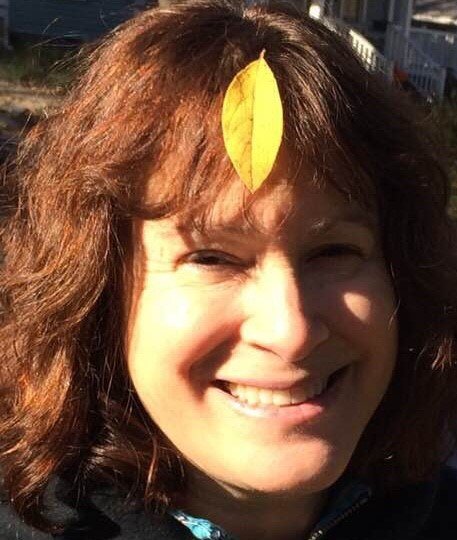Meet EPA Biologist Laura Jackson, Ph.D.
EPA Research Biologist Laura Jackson, Ph.D., investigates how to use research to address emerging environmental problems. Currently, she is focusing on the link between natural ecosystems and public

How does your science matter?
My research looks at the role of ecology in public health, and it’s very focused on application. The applications we develop are meant to be accessible, readily available on the internet, and geared toward members of the public for use in their communities. I work to frame ecology in terms of public health and well-being. It is vital that we understand that the condition of the natural world and our survival are tightly connected.
For example, we know it’s important for seniors to be active in order to combat muscular atrophy and depression, which affect longevity and quality of life. Previous studies suggest that longevity in seniors is associated with residential areas where there are tree-covered walkways and parks. If we can begin to identify neighborhoods where seniors may have lower life expectancy because there are no conducive walking areas, that would be extremely helpful for guiding public-health intervention.
If you could have dinner with any female scientist, past or present, who would it be and what would you want to ask them?
I had dinner with Dian Fossey in college, so I’d love to pair that with Jane Goodall, both great ladies in primate behavior fieldwork. If I could add someone else to the table, I’d want it to be Jane Jacobs, who is more of a social scientist. She brought the importance of urban planning and community design to the attention of a very wide audience. I really like the way she brought the fields of urban design together with sociology and health.
What do you like most about your research?
It’s creative. I like generating ideas and pursuing them with the flexibility they require. Right now, what I really love is having a number of fellows and master’s graduates who are helping me to get a lot of work done. They have boosted my productivity, have the latest training, and their education is much more integrative than what I had to push for in school. I love being a mentor.
Tell us about your background.
I wasn't satisfied with single-focus majors in college; I wanted to blend biology and psychology and develop an independent major in animal behavior. So, I had to write up a justification for why I wanted to blend these fields and how I was going to do it.
As a result, I have a pre-med background with lots of wildlife fieldwork. After college, I became the Assistant City Naturalist for Raleigh, North Carolina for a few years. I taught, built trails and a butterfly garden, and took care of injured animals.
But, I wanted a position that would give me more decision-making ability so I got my Masters in Environmental Management at Duke University. Eventually I chose to continue my education and earn my Ph.D. in Ecology at the University of North Carolina-Chapel Hill.
When did you first know you wanted to pursue science?
I’ve been volunteering to help with animal behavior studies since high school. However, a course that I took in 9th grade covered Bronowski’s Ascent of Man — a book and PBS series that covered anthropology, biology, evolution, sociology, and geography. It was just so fascinating to me that all these things are really the same stories and very interconnected. That class stood out for me and really opened up an awareness of the breadth of the pursuit of scientific knowledge.
If you were not a scientist, what would you be doing?
I think I might like to be a nature educator and live in a beautiful tree house somewhere. Conservation advocacy is another option. I think you have to reach people when they are really young because they are more open to new ideas and have an innate connection with nature.
Any advice for students considering a career in science?
I would try lots of things and branch out. It's important not to get narrowed into a particular field too early. I encourage young people to be adventurous when it comes to their education.
Editor's Note: The opinions expressed herein are those of the researcher alone. EPA does not endorse the opinions or positions expressed.
